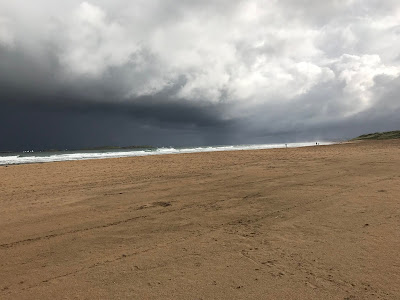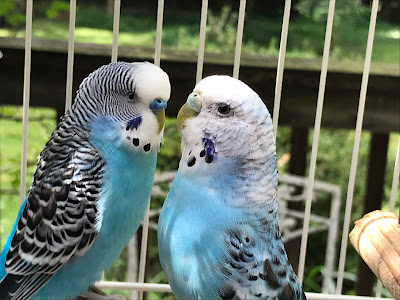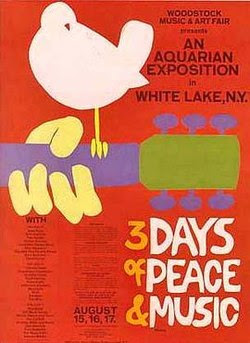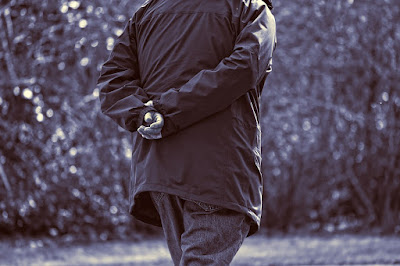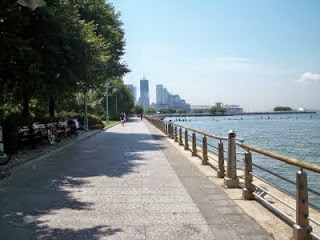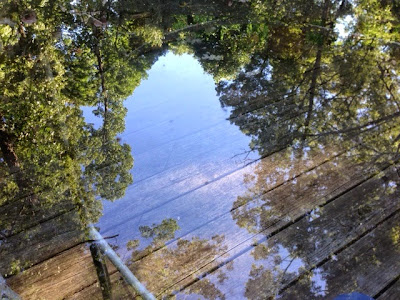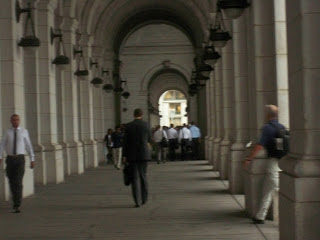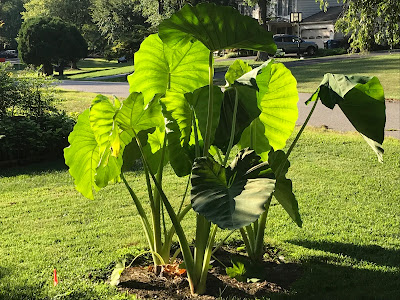Their Own Season
Late afternoons have become their own season here, as the day becomes too much for itself and collapses under the weight of its own humidity.
First there is the darkening sky. The cumulonimbus loom large and black.The wind whips up and makes eddying noises as it blows in open windows, lifting up the light curtains. Even these many years later, I remember the earliest storms, rushing out to pull clothes off the line.
The smell comes next. It’s ozone, I learn. A pungent odor shot from lightning and brought to earth by downdrafts. Then the thunder, crashing and booming.
And finally the rain itself, a relief on the hottest days, a nuisance on others. Great rolling sheets of it, sometimes more than an inch an hour. Rain that bloats streams and sends them spilling over their banks, that sends me scurrying home along alternate routes.
Because the storms arrive just as I make my trek westward, into the thick of it. And last night, back to a dark, warm house. No power for three hours. And the only sound: the loud hum of the neighbor’s generator, installed just weeks ago. How did they know?
